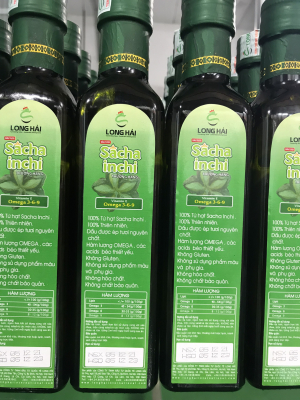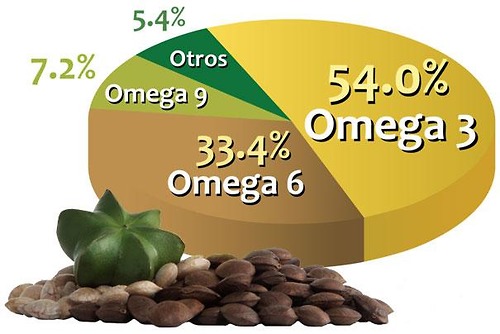Appropriate content of Omega-3 for per day
03/11/2021 Appropriate content of Omega-3 for per day
Omega 3 has various benefits for health
Omega-3 fatty acids offer many benefits for health
Supplement of fatty fish at least twice a week is the best way to get omega-3.
If you do not regularly eat fatty fish, a supplementary product is an alternative choice.
However, a very important thing you should remember is that your supplement must contain EPA and DHA.
The EPA and DHA are the best omega-3 in fatty fish and algae.
This article will refer to the necessary content of omega-3 (EPA và DHA) to get the best health possible.
Instruction on standard dosage of Omega-3
There is no any standard on the necessary content of omega-3 each day
There are conflicting opinions given by experts from various mainstream medical institutions.
However, in general, most institutions all suggest a minimum of 250-500 mg EPA and DHA per day for healthy adults (1, 2, 3, 4).
However, some of them who own certain health conditions are recommended to take a higher amount of omega-3s than normal.
In conclusion: So far, there is no official standard for the amount of omega-3 per day. However, most health organizations agree that 250-500 mg of EPA and DHA is sufficient for adults to keep healthy.
Omega-3 for a number of certain health conditions
The supplement product of omega-3 is proved to be good for the following health conditions
Below is brief information on usage amount:
Cardiovascular health
A test with 11,000 participants using EPA and DHA at a dose of 850 mg per day for 3.5 years. Its result demonstrated that heart attacks were reduced by 25% and sudden death by 45% (5).
Many organizations, including the American Heart Association (AHA), recommend that patients who suffer coronary artery disease should take 1,000 mg. Those with high triglycerides are also suggested taking an amount from 2000 to 4000 mg of EPA and DHA per day (6, 7, 8, 9).
However, a number of large studies cannot find any benefit of omega-3 fatty acids for people with heart disease.
Trầm cảm và lo âu
The studies have indicated that a high amount of omega-3 in the range of 200-2,200 mg per day, can reduce symptoms of depression and anxiety (12, 13, 14, 15).
In cases of emotional and mental disturbances, a supplement with a higher amount of EPA than that of DHA may be the optimal choice.
Ung thư
Cancer
Supplement of more fish and omega-3 fatty acids may reduce the risk of breast cancer, prostate cancer, and colon cancer (16, 17, 18, 19).
However, there is no standard for the optimal dosage to minimize cancer risk.
Other diseases
Omega-3 fatty acids are useful for a variety of other health problems. Its effectiveness depends on many factors.
In conclusion: Omega-3 fatty acids are very good for many medical conditions. The scientific studies demonstrated that the most effective dosage is a range from 200 to 4,000 mg.
Omega-3 for children and pregnant women
Pregnant and lactating mothers should use omega 3 as a supplement. Studies show that omega-3 fatty acids, especially DHA, are important before, during, and after pregnancy (20, 21, 22, 23).
Most official standards all recommend that pregnant and lactating women should take an additional 200 mg of DHA other than the normal dosage (24, 25, 26, 27).
Several global and national organizations have published standards for infants and children from 50 to 100 mg of EPA and DHA per day (8, 26).
In conclusion: Pregnant and lactating mothers are advised to supplement with 200 mg of DHA. The recommended dosage for infants and children is 50-100 mg of EPA and DHA per day
The intake of Omega-6 may affect need of supplement of Omega-3
Omega 6 affects omega 3
A typical Western diet contains a higher amount of omega-6 ten times than that of omega-3. Omega-6 fatty acids are mainly from refined vegetable oils, which are commonly in processed foods (28, 29).
Many experts believe that the best ratio of omega-6 and omega-3 should be around 2:1 for a healthy body (30)..
Omega-6 and omega-3 fatty acids all require the same enzymes to be converted into active forms (31, 32).
Therefore, the need for the supplement of omega-3 may depend on the amount of omega-6. If you already consume a high amount of omega-6, you need to supplement with an even larger amount of omega-3.
In conclusion: The human body is healthy when the intake of omega-6 and omega-3 is in balance. The more omega-6 fatty acids you eat, the more omega-3 you need
Overdose of Omega-3 may be harmful
The U.S. Food and Drug Administration has confirmed that the use of omega-3 from supplements is safe if it is over 2,000 mg per day (33).
On the other hand, the European Food and Drug Administration (EFSA) states that 5,000 mg of omega-3s per day from supplements is safe.
These warnings are provided for various reasons. Firstly, Omega-3s may result in hemophilia or bleeding for some people.
Therefore, many organizations recommend those who are about to surgery, should stop the use of omega-3 supplements a week or two before surgery.
The second reason is vitamin A which can become toxic in a high dosage, and some omega-3 supplements (such as cod liver oil) contain a very high amount of vitamin A.
Finally, there are no studies proving that intake of more than 5,000 mg of omega-3s has any additional benefits. Therefore, you should not risk at taking too much.
In conclusion: The maximum intake of 3,000-5,000 mg of omega-3 per day is in the safe zone, although most people do not need such a high amount of omega-3.
Dosage for the omega-3 supplements
It is advised to pay attention to ingredients of omega 3
Please read carefully the label of the supplements containing omega-3 to determine its amount of EPA and DHA.
The dosage of these two substances on the product package often confuses us. For example, a label on a product may note that it contains 1,000 mg of fish oil, but the amount is much less, in fact.
Depending on the concentration of EPA and DHA in a serving, you may take up to eight tablets to achieve the recommended amount
Personally, I only take 500 mg of EPA and DHA from supplements with as little dosage as possible.
In conclusion: You should not only focus on the amount of fish oil, but need to consider the amount of EPA and DHA in the supplements to control the intake of EPA và DHA.
Notes
Please follow the instructions on the label of omega-3 supplements.
However, the need for omega-3 of each person is different. Some people may need a higher amount than others.
You should only supplement omega-3, provided that it is not beyond 250 mg to 3000 mg of EPA and DHA per day, unless otherwise directed by a healthcare professional.
News Source
Related news
Sacha inchi
11/01/2021




















